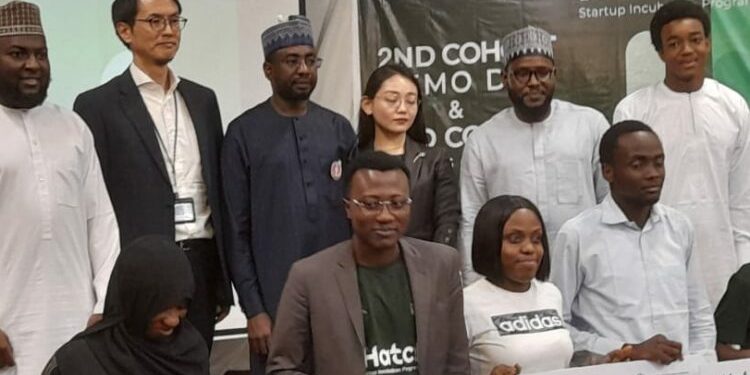Three Nigerian start-ups clinched a significant stride forward in their entrepreneurial journey by securing a collective sum of $37,000 in seed funding from the Japan International Cooperation Agency (JICA) at the Idea Hatch (iHatch) incubation program’s Cohort II Demo Day and Cohort III opening ceremony. This initiative, backed by JICA and hosted by the National Information Technology Development Agency (NITDA) in Abuja, aligns with Nigeria’s digital economy agenda, fostering innovative ideas and nurturing them into impactful entrepreneurial ventures.
At the event, the top three start-ups received varying amounts: the first, second, and third-placed start-ups were awarded $15,000, $12,000, and $10,000, respectively, empowering them to further develop their business models and ideas.
Mallam Kashifu Inuwa Abdullahi, Director General of NITDA, highlighted the iHatch programme’s five-month intensive incubation, focusing on coaching, lectures, and boot camps to refine business ideas and create scalable models. Emphasizing the program’s emphasis on youth, innovation, entrepreneurship, and technology, Abdullahi underscored its significant impact on job creation and Nigeria’s digital solutions landscape.
He outlined plans to expand the iHatch training nationwide, covering all 36 states and the Federal Capital Territory (FCT), acknowledging the potential for job creation and fostering digital solutions across the country.
Kazuyoshi Matsunaga, the Ambassador of Japan to Nigeria, commended Nigeria’s burgeoning entrepreneurial activity and expressed admiration for the startups’ resilience in addressing critical societal issues despite challenges in security and infrastructure. He highlighted Japan’s commitment to supporting Nigerian startups through various schemes, including iHatch, NINJA, and IICA, stressing the importance of collaboration between Japanese and Nigerian companies to drive innovation and economic growth.
Matsunaga emphasized startups as catalysts for transformation, bringing fresh ideas, innovative technologies, and new employment opportunities. He envisioned a brighter future for Nigeria through investment in startups and the cultivation of a culture of innovation, citing Japan’s role in supporting Nigeria’s startup ecosystem and fostering economic diversification.
He concluded by stressing the significance of partnerships between Japanese and Nigerian companies, fostering technological transfer, knowledge sharing, and joint product development, promoting continuous improvement, and underlining the importance of economic diversification for Nigeria’s sustained growth and prosperity.










